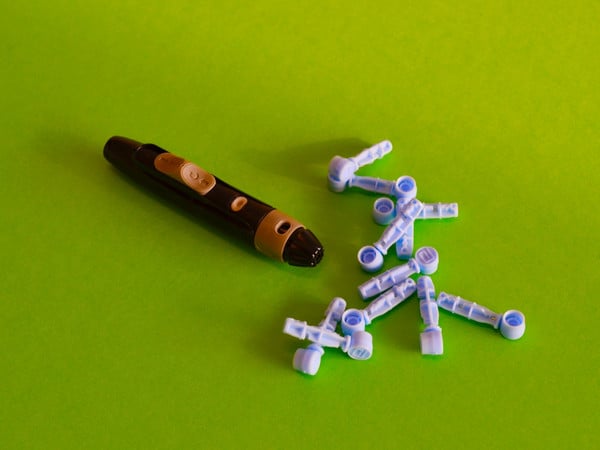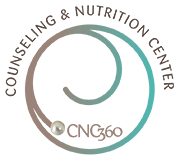Nicole Patience is one of the leaders in the field of diabetes and eating disorders.
This month we are featuring a blog by Nicole. We are unbelievably fortunate at CNC to learn and work with Nicole. Her extensive experience and knowledge are supplemented by her skills in mindfulness and stress management. Nicole has a long list of professional speaking and teaching engagements to advance the understanding and clinical care for this population.
By Nicole Patience MS, RD, LDN, CDCES, CEDRD
 When someone is caught in a dieting mindset or the fear-based thinking of an eating disorder, numbers can become an obsession. Eating disordered thinking uses numbers to rationalize behaviors. When someone needs to manage glucose data as well as an eating disorder, it can feel overwhelmingly complicated. The thoughts around glucose readings can lead to behaviors such as food restriction, binges, over-exercise, or purges.
When someone is caught in a dieting mindset or the fear-based thinking of an eating disorder, numbers can become an obsession. Eating disordered thinking uses numbers to rationalize behaviors. When someone needs to manage glucose data as well as an eating disorder, it can feel overwhelmingly complicated. The thoughts around glucose readings can lead to behaviors such as food restriction, binges, over-exercise, or purges.
An important part of recovery is to notice the feelings and thoughts that occur with glucose monitoring. Working with an eating disorder dietitian who is also familiar with diabetes management will provide a valuable opportunity for an individual to develop awareness and learn the tools to find a healthier relationship with food and their body.
It is normal to have feelings around this process that reflect your history. Those feelings are mirroring the fear, judgment, blame, or even shame that have been a part of your lived experience. The allostatic load1 of shame on the body can significantly interfere with health outcomes and is one of the reasons we feel so strongly about providing individuals with respectful, compassionate, and individualized care.
When clients ask me “Why should I check my glucose?,” here are some of the pros and cons that I offer for discussion:
- What are the advantages of checking your glucose?
- Be able to respond quickly to hypoglycemia, low glucose <70mg/dl, in a safe way.
- Explore the impact of a particular food, portion, activity or medication on the body’s glucose level with curiosity.
- Feel empowered to make small adjustments to meals or medications depending on whether glucose is trending upwards or downward.
- Communicate your glucose numbers with your healthcare team.
- Disadvantages?
- Introduce the potential for feelings of fear, judgment, blame or shame related to the reading, and manage any eating disorder thoughts that ensue.
- Expose diabetes diagnosis in public or around family or friends.
- Pay for supplies and experience the pain of fingerstick testing if using a glucose meter.
I work with clients to help them navigate their eating disorder thoughts so that they can take better care of themselves through the wisdom of their own body. And sometimes finding the wisdom of the body means checking glucose levels. Let me offer some examples of common eating disordered thoughts and responses I have offered that clients have found helpful.
Client: “My glucose is high, so at this point I might as well go ahead and binge on all the foods I really want to eat.“
Nicole: “It sounds like you get caught in the good food/bad food trap when your glucose is high and there is a tendency to want to throw in the towel. Would you be open to exploring ways to bring in both the safe and the fun foods, with attunement to diabetes care?“
Client: “When my glucose is low, this means I need to eat, but when I have low blood sugar, it’s hard to stop eating once I start.“
Nicole: “The symptoms of hypoglycemia, or low blood glucose, can feel scary, and your willingness in the past to treat hypoglycemia shows you recognize the safety reasons for treating a low. Are you interested in setting up some experiments around strategies to recover from hypoglycemia without feeling out of control?“
Client: “My glucose is 200mg/dl, so I need to walk or run or spin until it comes back down into target range.“
Nicole: “I can see that managing your diabetes is very important to you, and you are highly committed to respond to your glucose data with action. The variability can sometimes be unpredictable, as diabetes can have a mind of its own. How could we explore other self-care activities to cope with an elevated glucose?“
These are some examples of all or nothing thinking that can lead to avoiding self-care around diabetes and eating disorder recovery. You are not alone in navigating this complicated relationship. When working with a care team, your Dietitian or Diabetes Care and Education Specialist can explore these thoughts with you and help to attend to these thoughts and feelings, while still aligning with your other health goals.
If you’re looking for further assistance, please feel free to reach out to us.
1Vadiveloo M, Mattei J. Perceived Weight Discrimination and 10-Year Risk of Allostatic Load Among US Adults [published correction appears in Ann Behav Med. 2017 Feb;51(1):105]. Ann Behav Med. 2017;51(1):94-104. doi:10.1007/s12160-016-9831-7.
